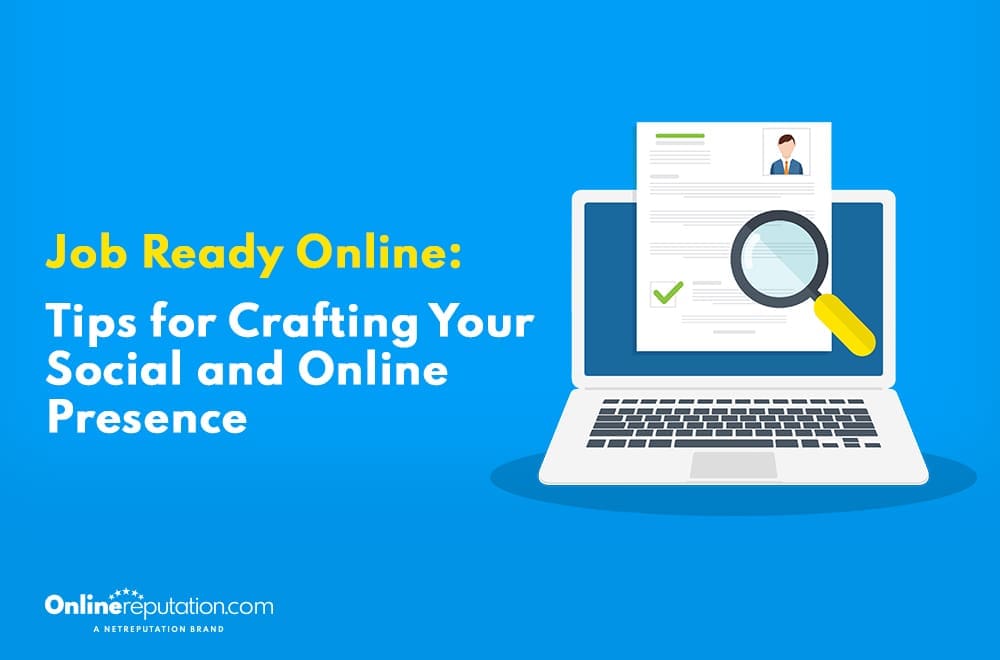
In the modern job market, a strong online presence is vital for standing out to employers. This article highlights the significance of crafting a professional online persona and provides actionable tips for effectively building and maintaining an online portfolio.
Why is Having a Strong Online Presence Important for Job Readiness?
A robust online presence is essential for job readiness, offering employers insight into your professionalism, skills, and suitability. It’s more than just having profiles on platforms like LinkedIn; it’s about crafting a professional image that showcases your expertise and achievements. Maintaining a strong digital footprint enhances your visibility and credibility, increasing your chances of securing your desired role.
Platforms like LinkedIn, with detailed job histories and endorsements, are pivotal in impressing recruiters and hiring managers and strengthening your candidacy.
What are Employers Looking for in Your Online Presence?
Employers assess your online presence meticulously to gauge your professionalism, brand alignment, and cultural fit. Consistency across platforms is paramount, demonstrating a coherent portrayal of your skills and experiences. Authenticity is highly valued, showcased through genuine interactions and content that reflects your values. Moreover, relevance to your industry signals an understanding of current trends and issues, further impressing employers.
How to Craft Your Social Media Presence for Job Readiness?
Crafting a strategic social media presence is crucial for job readiness. It allows you to showcase skills effectively and connect with potential employers. Start by auditing and updating profiles on LinkedIn, Twitter, and professional Facebook pages. Use keywords relevant to your industry in your bio and optimize your profile picture and cover photo. Highlight achievements through work examples and engage with industry professionals by following influential figures and joining relevant groups.
Leverage online communities and job boards to stay informed about opportunities, contributing to discussions to make job search efforts establish credibility and enhance job readiness.
Audit Your Current Social Media Accounts: Review privacy settings to control who sees your content. Remove inappropriate or unprofessional posts—update profile information to reflect your professional identity, especially on platforms like LinkedIn.
Create a Professional Online Persona: Focus on visual branding with a cohesive color scheme and professional headshots. Maintain a consistent tone of voice and prioritize accuracy, relevance, and authenticity in content. Align your professional photo personal brand with career goals to attract the right opportunities.
Showcase Your Skills and Accomplishments: Use multimedia content to bring accomplishments to life. Incorporate testimonials and recommendations for added credibility. Highlight specific projects to give insight into abilities and achievements.
Connect with Industry Professionals: Engage authentically with peers’ content on platforms like LinkedIn and Twitter. Reach out to established professionals to seek mentorship and professional networking opportunities. Join industry-specific groups and forums to gain knowledge and establish credibility.
Join Relevant Online Communities: Participate actively in industry-specific groups, forums, and social media communities to gain knowledge and establish credibility. Collaborate with like-minded professionals to open doors to new opportunities and collaborations.
Use Social Media to Network and Find Job Opportunities: Engage with industry professionals and potential employers on platforms like LinkedIn and Twitter to stay updated on trends and job opportunities. Join industry-specific forums and groups to expand your network and gain visibility. Maintain a polished and professional online presence to enhance career prospects.
Tips for Building a Strong Online Presence for Job Readiness
Maintaining a strong online presence involves consistency, engagement, and strategic content creation to attract employers and enhance your professional brand. Brand consistency, including colors, fonts, and messaging, builds trust and recognition.
Incorporating relevant keywords and hashtags improves visibility and reaches your target audience. Engage with your audience by responding promptly to comments and private messages and participating in industry conversations to expand your network and increase influence.
1. Be Consistent Across All Platforms
Consistency in online branding, messaging, and interactions is vital for a cohesive personal brand. Whether on Instagram, a website, or LinkedIn, maintaining a consistent style, voice, and message builds trust and familiarity.
This alignment establishes credibility and professionalism, making it easier for clients or employers to engage with and remember the brand. A well-executed brand consistency strategy enhances brand recognition, fosters customer loyalty, and creates a strong brand image that resonates with the target audience.
2. Use Keywords and Relevant Hashtags
Incorporating relevant keywords and hashtags into online content enhances discoverability, SEO ranking, and audience engagement. Strategic use of industry-specific terms and popular hashtags boosts content reach and effectively attracts the target audience. Trending hashtags in social media posts and articles increase discoverability, aligning online presence with current trends and enhancing visibility among relevant audiences.
3. Engage with Your Audience
Engaging actively with your online audience by responding to comments, messages, and discussions builds a sense of community, trust, and credibility around your personal brand. Prompt responses demonstrate value for audience input and commitment to relationship-building. Initiating conversations, seeking feedback, and participating in industry discussions humanize your brand and cultivate a loyal following.
4. Keep Your Profiles Up-to-Date
Regularly updating online profiles with current information, achievements, and projects demonstrates professionalism, relevance, and active career engagement to potential employers. Keeping platforms like LinkedIn up-to-date increases chances of being discovered for new opportunities and makes a strong impression on recruiters. Sharing recent accomplishments and skills on social media enhances visibility and showcases continuous growth in the industry.
Maintaining links to an updated professional portfolio or personal website demonstrates evolving expertise and positions you as a proactive professional.
5. Monitor Your Online Reputation
Regularly reviewing and managing your online reputation is vital for safeguarding your professional image and minimizing potential risks. Monitoring online mentions, reviews, and feedback lets you understand how you or your brand are digitally perceived. Being responsive to negative content helps maintain a positive online presence.
Search engine tools like Google Alerts provide real-time updates on mentions or reviews related to you. Proactive content strategies, such as regularly creating and sharing valuable content, contribute to shaping a favorable narrative around your online presence.
6. Use Privacy Settings to Control Your Online Image
Managing privacy settings on social media and online profiles allows you to control the visibility of personal information, photos, and posts, ensuring a professional and secure online image. By adjusting these settings, you can choose who sees your updates and personal data, minimizing the risk of unauthorized access, identity theft, and online harassment.
It is essential to regularly review and update these settings, considering platform changes and new features that may affect privacy. Balancing content sharing with privacy protection is crucial for maintaining a positive online presence and safeguarding personal information.
7. Be Authentic and Professional
Balancing authenticity with professionalism in your online presence is crucial for establishing credibility and trust with your audience. By staying true to your values and being transparent, you can foster a deep connection with your followers, increasing engagement and loyalty.
Thought leadership and sharing valuable content that reflects your expertise and perspective can further enhance your reputation. Upholding ethical standards demonstrates integrity and respect for your audience, contributing to a positive online image.
You might also like
Pushing Down Negative Search Results: A How-to Guide
In the modern job market, a strong online presence is vital for standing out to employers. This article highlights the …

